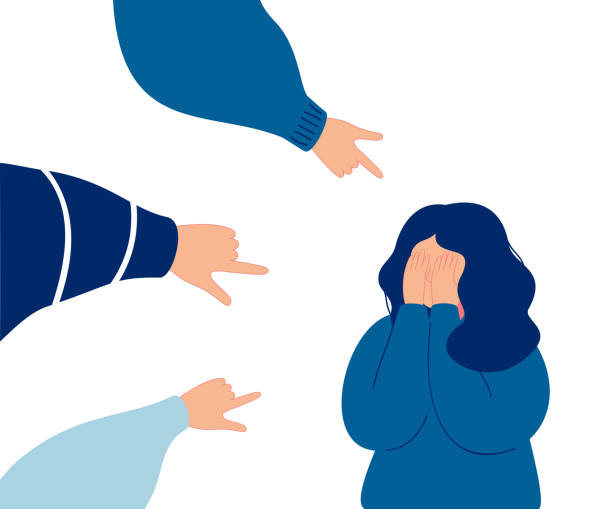5 Signs of Autism for Girls & Women

Do you feel really different from others? If you clicked on this article, you might suspect that you are on the autism spectrum. For girls and women, exploring this possibility is far more confusing and misleading than for boys and men. Research into autism has traditionally been based on male cases, which limited our understanding. What we call “autism” is really just “male autism”! Recent evidence shows that the typical traits for female cases can be substantially different from the male cases. As a result, girls and women with autism are systematically underdiagnosed and misunderstood when they don’t fit the traditional criteria used to diagnose autism. Luckily, researchers are starting to take “female autism” more seriously and we are getting a better understanding of what it’s like. Here are 5 signs of autism for girls and women.
This is a disclaimer that this article is for informative purposes only. It is not intended to diagnose any condition. Please reach out to a qualified professional if you want to explore the possibility of an autism diagnosis.
1) You find it difficult to maintain long-term friendships.

Girls and women with autism have issues with social interactions that are not as obvious to an outside observer. Compared to the average male counterpart, you might be better able to convincingly mimic eye contact, tone of voice, facial expressions and other conversational norms. This sort of fake charisma can help you to fit in, but it hides your inner struggles and only works in short bursts. Maintaining a long-term friendship is more complex and involves constant attention, support, conflict resolution and emotional understanding. Have you found that all your social interactions flow smoothly but you somehow have no friends? If you do make friends, do they suddenly leave you, “ghost” you or turn on you for reasons you can’t understand? When conflicts arise, are you totally confused about why they happened and what to do about them? If you are fine with short-term interactions but can’t maintain long-term relationships, you might be on the autism spectrum.
2) You have very intense interests.

Girls and women with autism tend to have special interests that are harder to detect. Compared to the average male counterpart, these interests are often more mainstream, less restricted, and expressed in more socially acceptable ways. Common topics include animals, dolls, celebrities, literature, fictional characters and psychology. It’s the intensity of the interest that makes it an autistic special interest. When you engage with your interest, do you hyperfocus for hours and completely lose track of time? Do you arrange or line up objects of interest and feel like you are in another world, completely unaware of your surroundings? Do you memorize details to the level of a professor? If your interests are seen as usual for your gender and age but you experience them more intensely, you might be on the autism spectrum.
3) You internalize.

Girls and women with autism tend to be prone to internalizing disorders. Compared to the average male counterpart, you are more likely to react to difficult emotions by turning inwards to an unhealthy degree. You might be reinterpreting every situation so that you’re to blame and something’s always wrong with you. When you experience confusion, you think “I don’t get it” rather than “that doesn’t make sense”. When you experience frustration, you think “I’m so bad at this” rather than “this is so difficult”. When you have conflicts with others, you think “I’m always saying the wrong thing” rather than “this person always overreacts”. You might even “punish” yourself by cutting or starving yourself to deal with emotional difficulties. Please note that internalizing can be part of other psychological conditions like depression and is not necessarily a sign of autism itself. However, there is a significant overlap between female autism and internalizing disorders, so it remains a possibility to consider.
4) You “clone” the personalities of others.

Girls and women with autism tend to have more effective strategies for “camouflaging” or “masking” their behavior. Compared to the average male counterpart, you might be better able to overcome a lack of social understanding by “cloning” the personality of someone more popular. This strategy involves intensely studying, memorizing, and mimicking a fictional character or another person in your life. You blindly imitate the clothing style, mannerisms, speech patterns and catchphrases because it helps you to fit in. However, this technique is not perfect as others might catch on that you are repeating the same lines, or failing to adjust your behavior to match different situations. Those who use this strategy report that they are always exhausted and have the constant feeling that they are a fraud with no real personality or identity. If you have to strategically mimic someone else to connect with others, you might be on the autism spectrum.
5) People often take advantage of you.

Girls and women with autism tend to feel more vulnerable compared to their peers. Compared to the average male counterpart, you are more likely to hyperfocus all your energy into a single “best friend”, only to be betrayed by surprise, again… and again… and again. Girls and women with autism are blind to the motives of others, as manipulation, hierarchies and scheming don’t come naturally to mind. As a result, they are prone to being constantly victimized when they can’t tell fake friends from genuine friends, or abusive partners from genuine partners. They often report a strange paradox where they are extremely paranoid but also extremely gullible at the same time. Have your friends regularly broken your trust? Are you always the target of obvious tricks and pranks? Have you been perplexed when others seemed to extend their affection to you, only to act cruel all of a sudden? Unfortunately, bullying and betrayal happen to a lot of people, but if they are extremely frequent in your life, you can never predict when they will happen, and others say you are too naive, you might be on the autism spectrum.
Do you relate to any of the traits mentioned in this article? Let us know in the comments below. And don’t forget to like and share this video if it helped you and you think it will help someone else. The studies and references used are listed in the description below.
References
Hull, L., Petrides, K. V., & Mandy, W. (2020). The female autism phenotype and camouflaging: A narrative review. Review Journal of Autism and Developmental Disorders, 1-12.
Lai, M. C., Lombardo, M. V., Pasco, G., Ruigrok, A. N., Wheelwright, S. J., Sadek, S. A., … & Baron-Cohen, S. (2011). A behavioral comparison of male and female adults with high functioning autism spectrum conditions. PloS one, 6(6), e20835.
Milner, V., McIntosh, H., Colvert, E., & Happé, F. (2019). A qualitative exploration of the female experience of autism spectrum disorder (ASD). Journal of Autism and Developmental Disorders, 49(6), 2389-2402.
O’Toole, J. C. (2018). Autism in Heels: The Untold Story of a Female Life on the Spectrum. Simon and Schuster.
Van Wijngaarden-Cremers, P. J., van Eeten, E., Groen, W. B., Van Deurzen, P. A., Oosterling, I. J., & Van der Gaag, R. J. (2014). Gender and age differences in the core triad of impairments in autism spectrum disorders: a systematic review and meta-analysis. Journal of autism and developmental disorders, 44(3), 627-635.



Responses